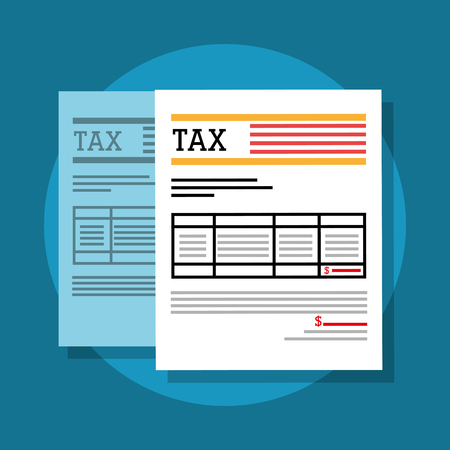Understanding Property Taxes in the U.S.
If you’re considering real estate investment in America, understanding property taxes is essential. Property taxes are a major factor that can impact your investment returns and cash flow. In the United States, property taxes are typically collected by local governments—such as counties, cities, or school districts—rather than at the federal level. These taxes are assessed based on the value of real estate properties, including land and any structures built on it. The revenue generated from property taxes plays a crucial role in funding important public services like schools, police and fire departments, road maintenance, and other community resources. For investors, this means that property taxes can vary widely depending on the location of your investment property. Being aware of how these taxes work—and who sets the rates—can help you make more informed decisions and avoid unexpected costs as you grow your real estate portfolio.
2. How Property Taxes Impact Real Estate Investment Returns
Property taxes are a recurring expense that can significantly influence the profitability of any real estate investment in the United States. While many investors focus on purchase price and rental income, it’s essential not to underestimate how ongoing property tax obligations affect both monthly cash flow and long-term return on investment (ROI).
Cash Flow Considerations
Monthly and annual property tax payments are typically non-negotiable costs for landlords, whether the property is occupied or vacant. High property taxes can eat into rental profits, reducing the net income you receive each month. On the other hand, properties located in areas with lower property taxes may offer better cash flow potential, even if their purchase prices are slightly higher.
Impact on ROI
When evaluating a potential investment, it’s crucial to factor property taxes into your ROI calculations. Ignoring them can lead to an overestimation of returns and unexpected financial strain down the road. Here’s a simplified example to illustrate:
| Low Tax Area | High Tax Area | |
|---|---|---|
| Annual Rent Income | $24,000 | $24,000 |
| Property Tax | $2,000 | $6,000 |
| Other Expenses | $10,000 | $10,000 |
| Net Operating Income (NOI) | $12,000 | $8,000 |
As shown above, higher property taxes can reduce your NOI by thousands of dollars annually, directly impacting your overall ROI.
Regional Variations and Future Increases
It’s also important to remember that property tax rates vary widely between states and even counties. Some jurisdictions reassess properties regularly, leading to unpredictable increases. Savvy investors should research local tax policies and historical trends before making a commitment. Anticipating possible future hikes can help you avoid nasty surprises and maintain solid returns over time.

3. Regional Variations in Property Tax Rates
One of the most important factors real estate investors must keep in mind is how dramatically property tax rates can differ across the United States. It’s not just a matter of state-to-state variation—property taxes are often set at the county or even city level, creating a complex landscape that can significantly impact your investment returns. For example, states like New Jersey and Illinois are notorious for high property tax rates, which can eat into your profits, while places like Hawaii and Alabama tend to offer much lower rates, making them more appealing for long-term holds.
Even within the same state, you’ll find considerable differences between urban and rural areas, or between different counties. A home in downtown Austin, Texas might come with a very different tax bill compared to a similar property just outside city limits. These regional variations don’t just affect cash flow—they also influence appreciation potential and resale value. Smart investors dig deep into local tax codes before committing to a purchase, recognizing that a “cheap” market may become less attractive once taxes are factored in.
To navigate this complexity, many investors consult local tax assessors or use online tools to compare effective property tax rates by zip code. Understanding these local nuances isn’t just about saving money; it’s about making informed decisions that align with your investment strategy—whether that means flipping properties for quick gains or holding onto rentals for steady passive income. Ultimately, being aware of these regional differences can make or break your real estate investment success.
4. Strategies to Reduce Property Tax Liability
For real estate investors, managing property tax expenses is crucial for maximizing returns. Fortunately, there are several legal strategies you can use to minimize your property tax liability. Here are some practical tips tailored for U.S. investors:
Appeal Your Property Tax Assessment
Property tax assessments aren’t always accurate and may overestimate your property’s value. If you believe your assessment is too high, consider filing an appeal with your local assessor’s office. Gather evidence such as recent sales of comparable properties, photos showing needed repairs, or professional appraisals to support your case.
Take Advantage of Exemptions and Credits
Many states offer property tax exemptions or credits for certain types of owners and uses. As an investor, research if you qualify for any of these opportunities:
| Exemption/Credit Type | Description | Who May Qualify |
|---|---|---|
| Homestead Exemption | Reduces taxable value for owner-occupied homes | Investors who occupy a property as their primary residence |
| Senior/Disabled Exemption | Lowers taxes for seniors or disabled individuals | Investors meeting age/disability requirements |
| Historic Property Incentives | Offers relief for restoring historic buildings | Investors renovating eligible historic properties |
| Agricultural Use Valuation | Lowers assessment for qualifying farmland/ranches | Investors holding agricultural property |
| Energy Efficiency Credits | Provides credits for eco-friendly upgrades | Investors making green improvements |
Review Your Property Classification Annually
Your propertys classification (residential, commercial, mixed-use) directly impacts its assessed value and tax rate. Ensure your property is accurately classified—misclassification could mean higher taxes. If you change the use of your property (for example, converting a single-family home into a rental), update records with your county assessor.
Maintain Accurate Records and Monitor Deadlines
Keep organized records of purchase documents, improvement costs, correspondence with assessors, and any exemption filings. Missing important deadlines for appeals or exemption applications can cost you money—set calendar reminders so you never miss out on savings.
Consult a Local Property Tax Professional
Laws and programs vary widely by state and municipality in the U.S. A local real estate attorney or property tax consultant can help identify all available options specific to your investment portfolio and location.
By staying proactive and informed about property tax laws in your area, you can keep more of your investment income while remaining fully compliant with regulations.
5. Due Diligence: Evaluating Property Tax Risks Before Buying
When it comes to real estate investment in the U.S., performing thorough due diligence on property taxes can make or break your bottom line. Savvy investors know that property tax bills can vary widely by location and are subject to change, so understanding the risks and forecasting future obligations is essential before signing any purchase agreement.
Researching Historical Tax Data
Start by obtaining the propertys current and past tax bills. Most county assessor offices provide online access to this information, making it easy to analyze trends over several years. Look for patterns such as consistent increases, sudden jumps, or reassessments after recent sales. This historical data will give you a baseline to anticipate future costs.
Understanding Local Tax Assessment Practices
Each state—and often each municipality—has its own rules for how properties are assessed and when they are revalued. Some jurisdictions reassess every year, while others may go several years between assessments. It’s crucial to know whether your potential investment is likely to be reassessed soon, especially if you’re buying at a higher price than the last recorded sale.
Factoring in Special Assessments and Exemptions
Don’t overlook special assessments for things like schools, infrastructure improvements, or local bonds, which can add substantial costs beyond standard property taxes. At the same time, check if the property qualifies for exemptions—such as homestead, senior citizen, or veteran status—that could reduce your tax burden.
Forecasting Future Tax Liability
Projecting future property tax obligations requires both research and educated guesswork. Consult with local tax professionals or real estate agents who understand upcoming budget proposals or changes in assessment formulas. Additionally, keep an eye on local news and government websites for hints of rate hikes or pending legislation that could impact your investment.
Key Takeaways for Investors
Before closing on a property, make sure you’ve reviewed all available data, consulted knowledgeable professionals, and built conservative estimates into your financial models. Doing your homework now protects your returns and helps you avoid unpleasant surprises down the road—making due diligence on property taxes one of the most important steps in any successful real estate investment strategy.
6. The Future of Property Taxes and Real Estate
As real estate investors look ahead, it’s crucial to keep an eye on the evolving landscape of property tax laws in the United States. Legislative changes at both state and local levels can significantly impact investment strategies, cash flow, and long-term profitability. For example, many states regularly debate adjustments to tax rates, exemptions, and assessment practices to balance budgets or address housing affordability.
Potential Impacts of Changing Tax Laws
Even minor shifts in property tax policy can have a ripple effect on real estate values and investor returns. Increased property taxes may squeeze rental yields, reduce resale profits, or make certain markets less attractive for investment. On the flip side, new exemptions or relief programs could open doors for more favorable investments, especially in emerging neighborhoods or opportunity zones.
Regional Variations Matter
It’s important for investors to recognize that property tax trends vary widely by region. States like Texas and Florida rely heavily on property taxes due to the absence of income tax, making them particularly sensitive to market fluctuations. Meanwhile, cities facing budget shortfalls might propose new levies on short-term rentals or luxury properties—policies that can alter demand overnight.
Staying Ahead of the Curve
To stay competitive, savvy investors should monitor legislative developments through local government websites, industry news outlets, and professional networks. Building flexibility into your investment model—such as factoring in potential tax hikes or seeking properties with stable assessments—can help mitigate surprises down the road.
Long-Term Strategy Is Key
Ultimately, understanding the future direction of property tax policy is as important as analyzing current market fundamentals. By staying informed and adaptable, real estate investors can position themselves to navigate risks and seize opportunities as the rules of the game continue to evolve.

